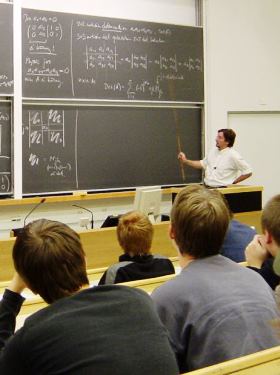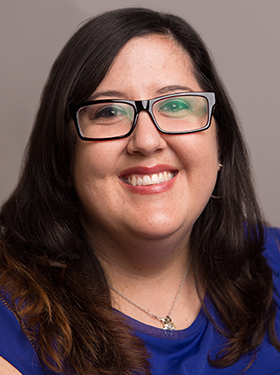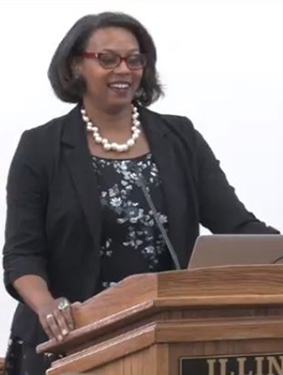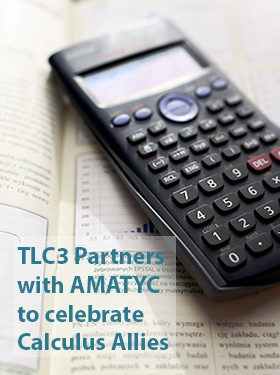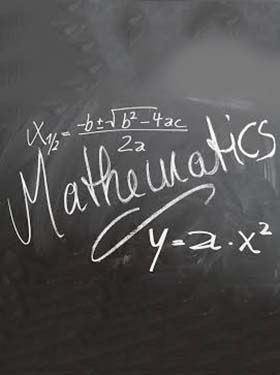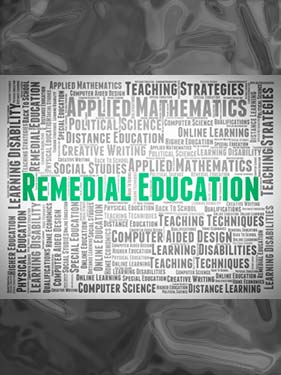
TLC3- Transitioning Learners to Calculus in Community Colleges
This project has been completed and is no longer active.
However, we hope you are able to utilize its resources.
Transitioning Learners to Calculus in Community Colleges (TLC3) is a research project aimed at transforming institutional approaches to matriculating STEM majors into and through Calculus II in community colleges. This Institutional and Community Transformation Development and Implementation project focuses on the 948 public associate degree-granting institutions (hereafter referred to as community colleges) in the nation. These institutions are crucial to meeting the demand for STEM talent in the U.S. and overwhelmingly serve as the primary pathway into postsecondary education for historically underserved students, particularly racial minority (URM) students. Specifically in this study, URM refers to Black/African American, Hispanic/Latino, Native American, Southeast Asian, and Pacific Islander students. Although URM students are overrepresented in community colleges, they are underrepresented among STEM majors at these institutions. Thus, given demographic shifts in the U.S., there is an acute need to transition more URM students into, through, and out of the Developmental to Pre-calculus to Calculus II (DPC2) sequence in community colleges.
Goals
The broader goal of this study is to build and test theoretical models that predict URM student success in the DPC2 sequence based on programs, structures, and instructional strategies in successful programs. We seek to explicate the nature of student progression toward higher-level math, by identifying factors contributing to URMs success at different levels of the DPC2 sequence, understanding the various transition points within DPC2, and how students’ background characteristics and perceptions of the community college environment impact their transitions. We will develop models that are sensitive to the unique structures of institutions designated as minority serving (MSI) and non-MSI. MSI designations are: (1) predominately Black institutions (PBIs) and historically black colleges and universities (HBCUs), (2) Hispanic Serving Institutions (HSIs), (3) Tribal Colleges and Universities (TCUs), and (4) Asian American and Native American Pacific Islander Serving Institutions (AANAPISIs).
This project has a strong commitment to broadening participation in STEM by understanding the experiences of diverse populations with the specific focus on URM. The greatest impact will undoubtedly involve supporting improvements to DPC2 that aim at increasing the diversity of the nation’s STEM force. The project will engineer a positive feedback loop between research and practical efforts to improve DPC2 sequences across the country. This project has an enhanced likelihood of having far-reaching impact because the research team includes scholars from different disciplinary orientations (e.g., mathematics, social science, higher education) who can leverage their expertise to heighten the transferability and rigor of this research. Finally, traditional dissemination efforts will actively draw upon the resources and reach of the researchers and advisory board members to distribute findings broadly to the entire collegiate mathematics community. This collaboration is integral to enhancing student outcomes as recommendations focused on educators are the most likely to be scalable and within the locus of control of institutional affiliates.
Collaborators
TLC3 gathers a team of higher education researchers, mathematicians, math educators, evaluators, and graduate students in higher education and mathematics education to understand the features that make a program in mathematics successful for STEM URMs at community colleges. These various perspectives enrich our understanding and help in focusing on several dimensions of the phenomenon that have traditionally been studied in isolation (e.g., persistence, retention) or not investigated at all (e.g., instruction).
Principal Investigators
- Helen Burn, Highline Community College (Award Number 1625918)
- Vilma Mesa, University of Michigan - Ann Arbor (Award Number 1625387)
- J. Luke Wood, San Diego State University (Award Number 1625946)
- Eboni M. Zamani-Gallaher, University of Illinois at Urbana-Champaign (Award Number 1625891)
Research Associates
- Darielle Blevins, San Diego State University
- Anne Cawley, University of Michigan – Ann Arbor
- Nexi R. Delgado, San Diego State University
- Michelle Samet, University of Illinois at Urbana-Chamaign
- Chauntee Thrill, University of Illinois at Urbana-Champaign
- Soua Xiong, San Diego State University
External Evaluator
- Soko Starobin, Ph.D.
Research Questions
The TLC3 study will answer the following guiding research questions.
- What types of programs, structures, and instructional strategies are community colleges currently implementing in the Developmental to Pre-calculus to Calculus II sequence?
- What are the effects (if any) of these programs, structures, and instructional strategies on URM students’ success in the Developmental to Pre-calculus to Calculus II sequence?
Resources

TLC3 Institutional Self-Assessment Tool for Equity Practices in the STEM Math Pathway
TLC3 acknowledges the mathematics of curriculum as a white space that contributes to inequitable educational outcomes for racially minoritized students, particularly for underrepresented racially minoritized (URM) students seeking degrees in science, technology, engineering, and mathematics (STEM). Discover the TLC3 Institutional Self-Assessment Tool, which provides a validated set of practices that can be used to identify and remove barriers for URM students in the areas of initial math placement, STEM math pathway courses, instruction, student support, and institutional responsibility.
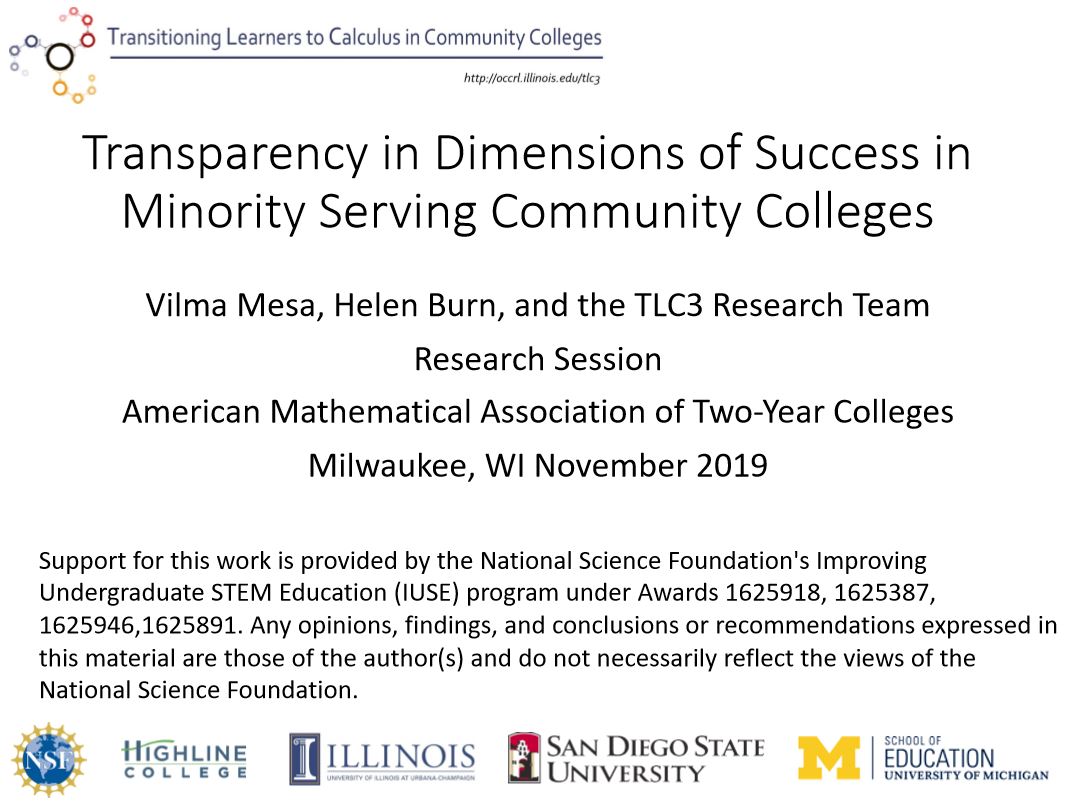
Transparency in Dimensions of Success in Minority Serving Community Colleges
Presented at the 2019 American Mathematical Association of Two-Year Colleges
November 2019
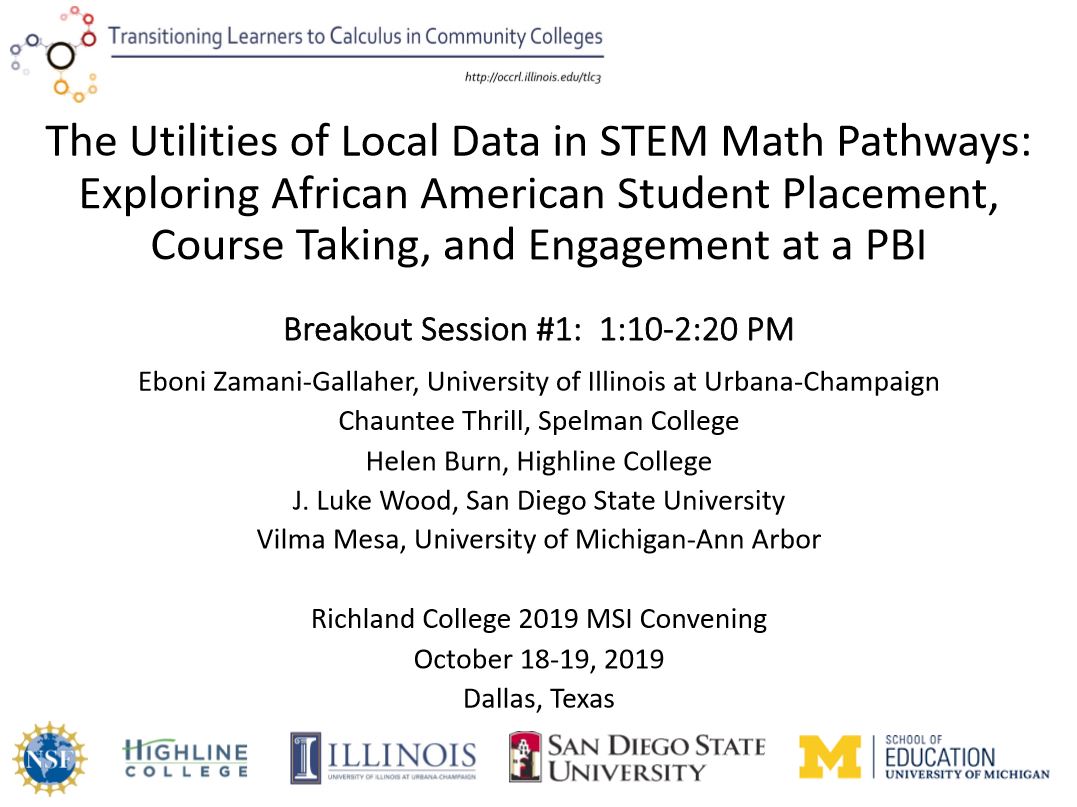
The Utilities of Local Data in STEM Pathways: Exploring African American Student Placement, Course Taking, and Engagement at a PBI
Presented at the 2019 Richland College MSI Convening
October 18-19, 2019
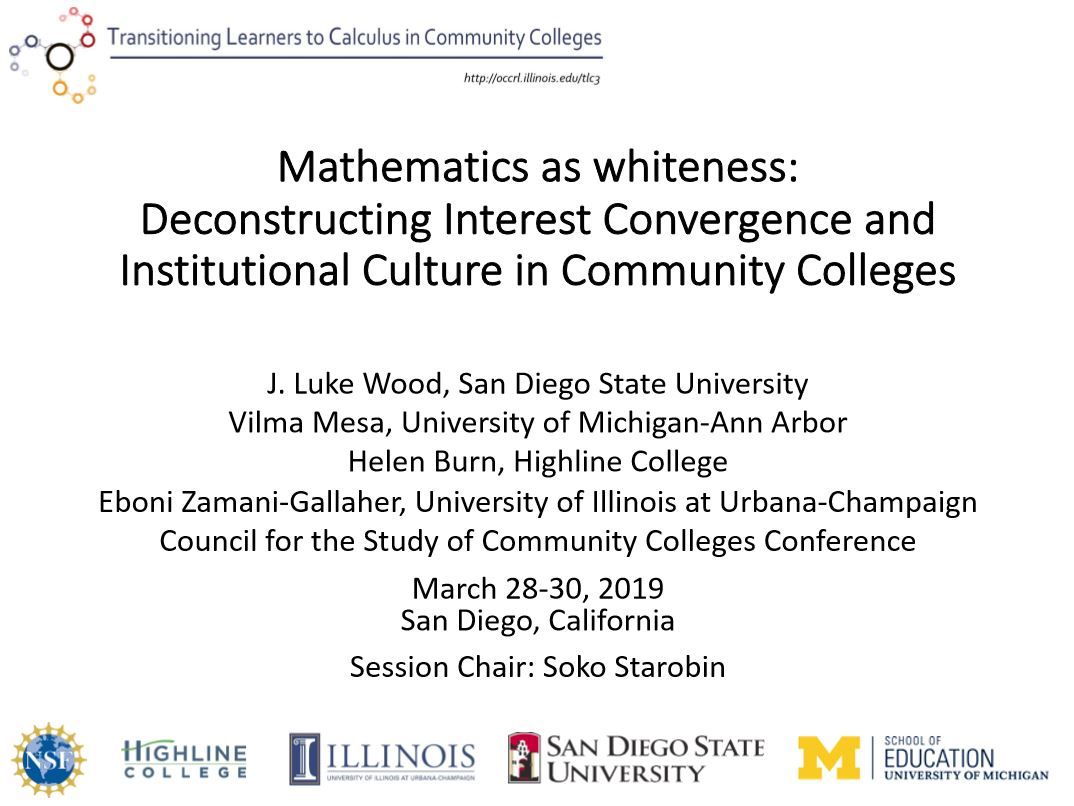
Mathematics as Whiteness: Deconstructing Interest Convergence and Institutional Culture in Community Colleges
Presented at the 2019 Council for the Study of Community Colleges Conference
March 28-30, 2019
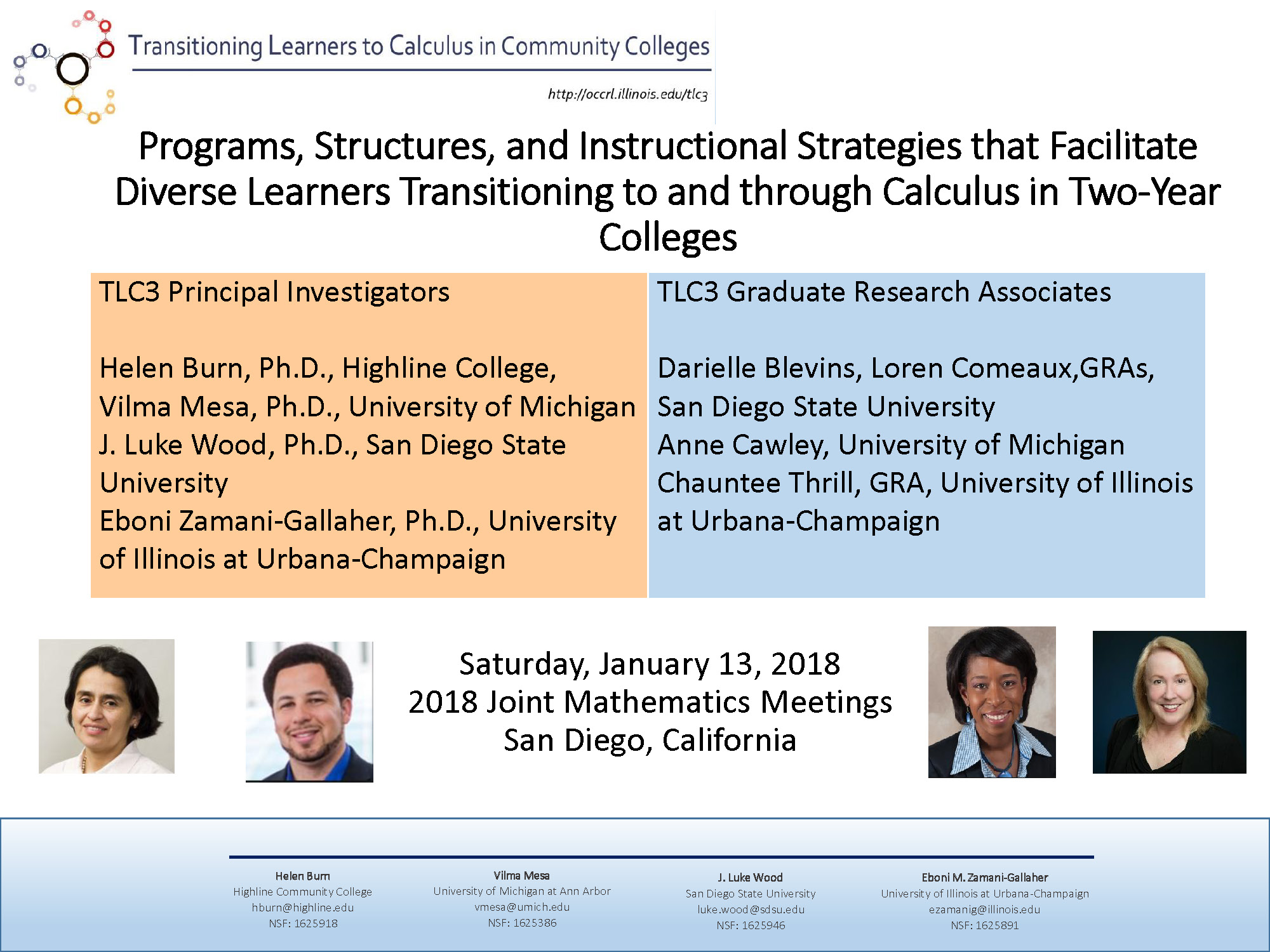
Programs, Structures, and Instructional Strategies that Facilitate Diverse Learners Transitioning to and through Calculus in Two-Year Colleges
Presented at the 2018 Joint Mathematics Meetings San Diego, California
January 13, 2018
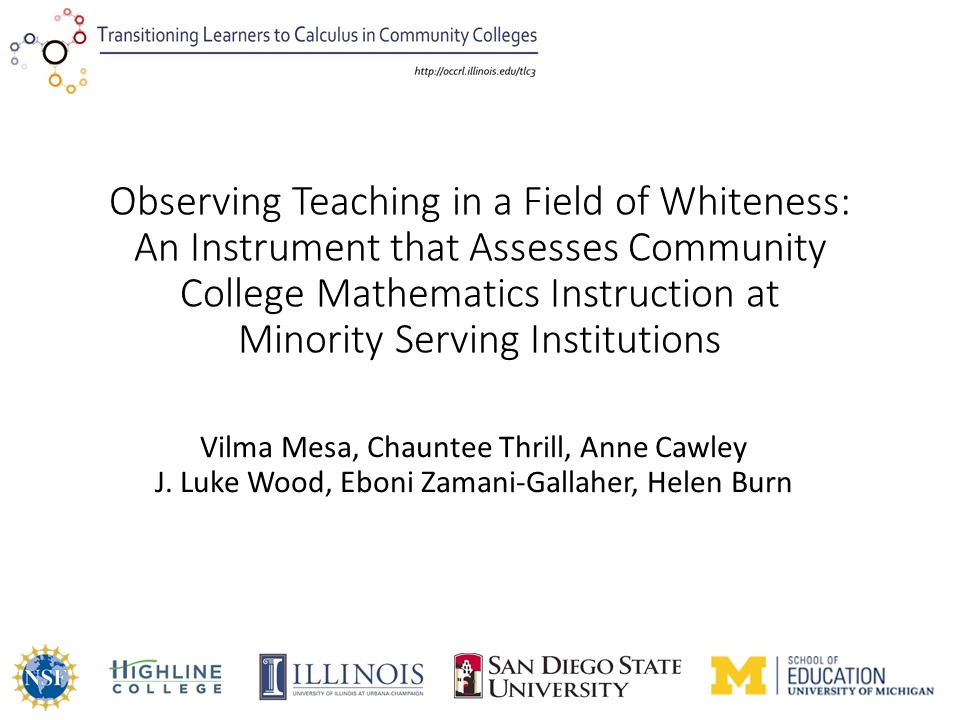
Observing Teaching in a Field of Whiteness: An Instrument that Assesses Community College Mathematics Instruction at Minority Serving Institutions
Presented at the Association for the Study of Higher Education
November 16, 2018
Podcasts
Curricular Readiness in Math and Curricular Alignment
 In this episode, OCCRL Director Eboni Zamani-Gallaher talks with Dr. Ann Edwards about college readiness in math and about curricular alignment. They also discuss issues related to placement and developmental mathematics courses, guided pathways, math pathways, and student participation in STEM.
In this episode, OCCRL Director Eboni Zamani-Gallaher talks with Dr. Ann Edwards about college readiness in math and about curricular alignment. They also discuss issues related to placement and developmental mathematics courses, guided pathways, math pathways, and student participation in STEM.
Asset Based Approaches to Developmental Education
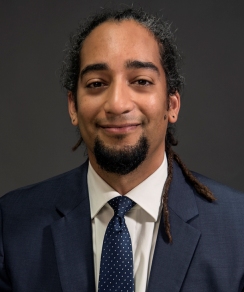 In this episode, Chauntee Thrill at OCCRL talks with Dr. Asif Wilson, associate dean of instruction at Harold Washington College, about asset-based approaches to developmental education.
In this episode, Chauntee Thrill at OCCRL talks with Dr. Asif Wilson, associate dean of instruction at Harold Washington College, about asset-based approaches to developmental education.
Equity-Minded Approaches to Mathematics Education
 In this episode, Dr. Vilma Mesa, associate professor of education at the University of Michigan, talks with Dr. Tatiana Melguizo, associate professor at the University of Southern California, about equity-minded approaches to mathematics education.
In this episode, Dr. Vilma Mesa, associate professor of education at the University of Michigan, talks with Dr. Tatiana Melguizo, associate professor at the University of Southern California, about equity-minded approaches to mathematics education.
Responsive Mathematics Pedagogy
 In this episode, Chauntee Thrill talks with Dr. Jennifer Banks, coordinator of mathematics and science at Washtenaw Intermediate School District, about responsive mathematics pedagogy.
In this episode, Chauntee Thrill talks with Dr. Jennifer Banks, coordinator of mathematics and science at Washtenaw Intermediate School District, about responsive mathematics pedagogy.
Additional Resource:
Equity in Mathematics Education
 In this episode, Dr. Eboni M. Zamani-Gallaher from OCCRL talks with Dr. George Reese the director of Office for Mathematics, Science, and Technology Education at the College of Education at the University of Illinois at Urbana-Champaign about equity in mathematics education.
In this episode, Dr. Eboni M. Zamani-Gallaher from OCCRL talks with Dr. George Reese the director of Office for Mathematics, Science, and Technology Education at the College of Education at the University of Illinois at Urbana-Champaign about equity in mathematics education.
Additional Resources:
Equity-Minded Approaches to Mathematics Education
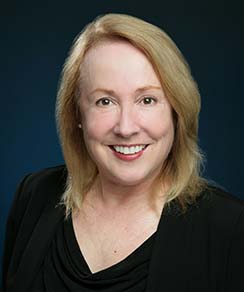 In this episode, Dr. Heather Fox from OCCRL talks with Dr. Helen Burn, a mathematics professor and Director of the Curriculum Research Group at Highland College, about equity-minded approaches to mathematics education.
In this episode, Dr. Heather Fox from OCCRL talks with Dr. Helen Burn, a mathematics professor and Director of the Curriculum Research Group at Highland College, about equity-minded approaches to mathematics education.
Webinars
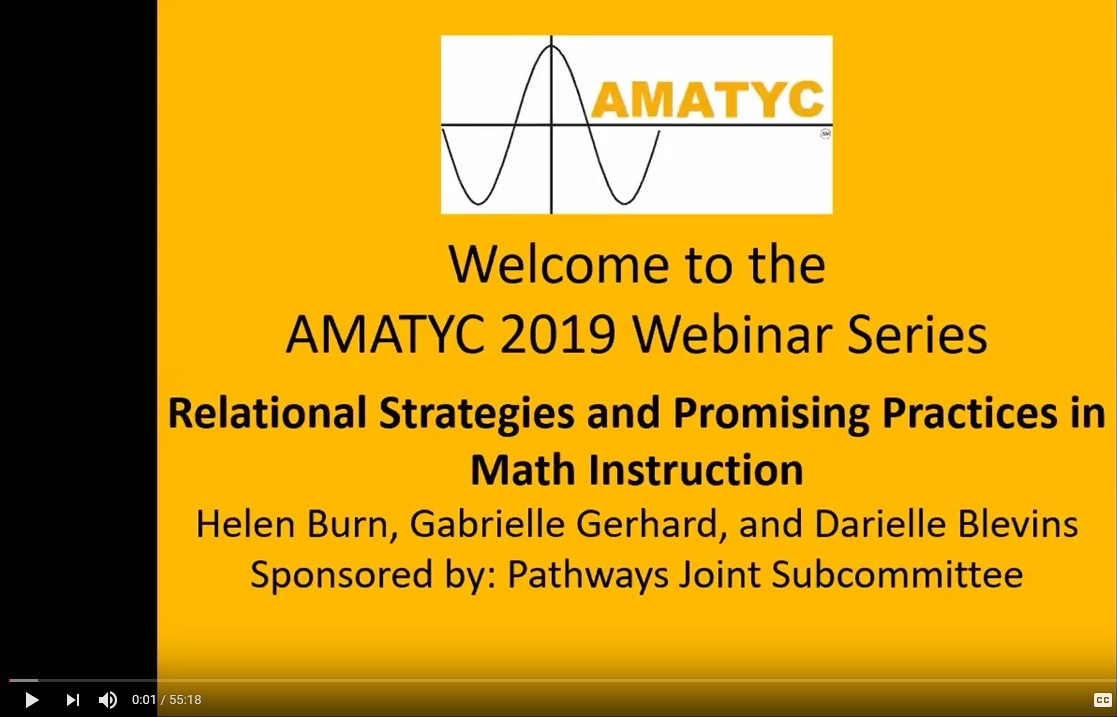
Relational Strategies and Promising Practices in Math Instruction
Presented March 4, 2019
Relational strategies and promising practices such as validation, reception, appropriate disclosure, cultural relevance, and performance monitoring can improve the success of historically underserved or underrepresented students in your classroom (Wood, Harris III, and White, 2015). This webinar explains these practices and provides examples of how faculty of four Minority-Serving Community Colleges incorporated them in classrooms observed in the Transitioning Learners to Calculus in Community Colleges project (NSF IUSE 1625918). The webinar will be of most interest to mathematics instructors, but the content is also relevant to anyone who mentors mathematics faculty or offers faculty professional development.
Additional Resource:
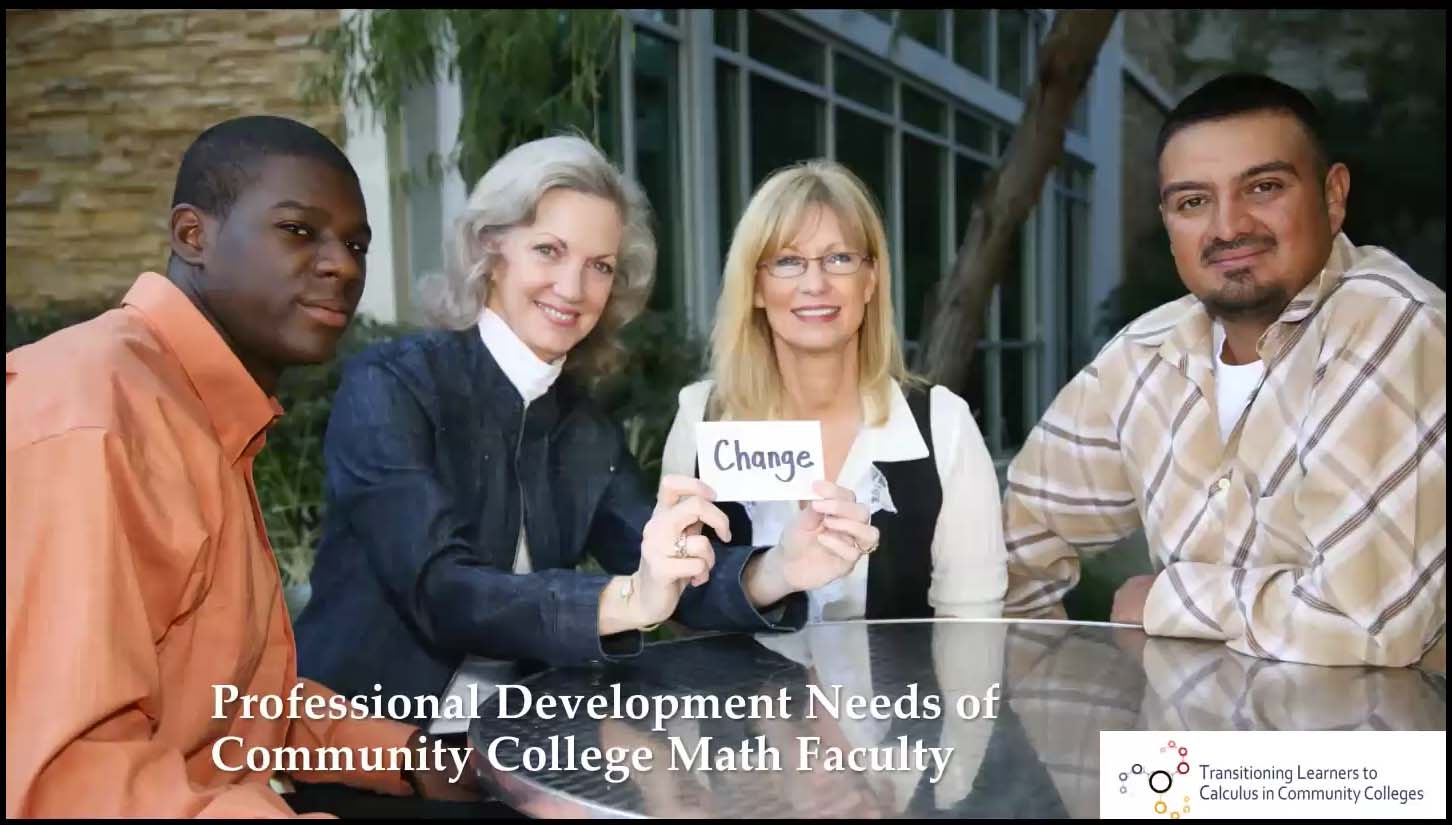
Professional Development Needs of Community College MathFaculty
Presented September 13, 2017
This webinar presents findings from a recent analysis of professional development needs among community college math faculty. Data in this presentation was derived from the Community College Instructional Development Inventory (CCIDI). This inventory is designed to identify areas in need for professional development for college faculty. A special sampling of the CCIDI was conducted as part of the Transitioning Learners to Calculus (TLC3) grant funded by the National Science Foundation (NSF). This webinar focused on a subset of data that addresses the unique disciplinary needs for professional development in mathematics that can improve educational outcomes for underserved students of color.
Publications
Mathematics Placement, Courses, and Use of Local Data in the STEM Mathematics Pathway in Predominately Black Institutions
This article focuses on mathematics placement, STEM mathematics pathway courses, and the use of local data, all factors that can have a disproportionate impact on students of color.
June 2020
Transitioning STEM Learners to Calculus: Findings from a National Survey of Mathematics Chairs in Two-Year Colleges by Hispanic-Serving Institutional Designation
This article presents findings from a national survey of mathematics department chairs in associate degree-granting colleges, disaggregated by Hispanic-serving institutional (HSI) status.
March 2019
National Survey of Community College Mathematics Chairs Technical Report and Summary
This report focuses on a national survey of community college mathematics department chairs conducted by the TLC3 research team during 2017 (TLC3 National Survey).
August 30, 2018
Voices & Viewpoints
Note
Support for this work is provided by the National Science Foundation's Improving Undergraduate STEM Education (IUSE) program under Awards 1625918, 1625387, 1625946, 1625891. Any opinions, findings, and conclusions or recommendations expressed in this material are those of the author(s) and do not necessarily reflect the views of the National Science Foundation.



